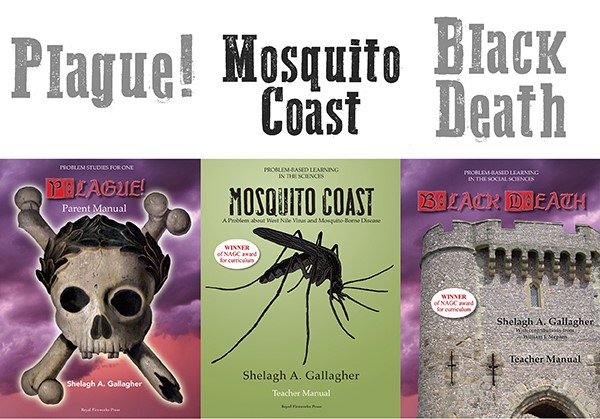Sign in for exclusive products and special discounts.

Why We Should We Teach Children about the Black Death
The coronavirus pandemic has changed the world—not just by shutting down societies but also by reshaping how industries function and how people work and interact with one another. Of particular note was the significant disruption in educational systems across the globe. But education is arguably the key to preventing future disruptions—and future pandemics as well.
Of course we should teach our children ways to avoid infection, and we should do what we can to help them stay healthy and safe, but we can also help them by teaching them how to problem solve when it comes to issues of public health and safety.
We offer problem-based learning units on the Black Death that swept Europe in the 1300s and on mosquito-borne illness in the present day. Based on Dr. Shelagh Gallagher’s brilliant approach to PBL, both units won exemplary-curriculum awards from the National Association for Gifted Children. They are designed to encourage students to work cooperatively and to problem solve at a high level. They take two to four weeks to implement fully and to see the problem through to a set of actions that might mitigate the consequences, but during that time, students use a wide range of skills that transcend single subjects of study.
Beyond their obvious general pedagogic benefits, units on the Black Death and mosquito-borne illness give students valuable perspectives on the coronavirus pandemic. Black Death presents students with a scenario based on a global pandemic that was far more horrifying than the coronavirus and asks them to decide upon a course of action that the members of a single village in the path of the outbreak should implement to protect the village’s residents. The twist is that the students are only allowed to know the information that was available to citizens of the fourteenth century—including the prevailing myths at the time. Although this hinders their ability to make an informed decision, it is exactly this lack of good, science-based information that throws into relief the importance of having such information—and quickly.
Mosquito Coast presents students with an intensely local scenario of concern faced by one school community and asks them to problem solve to create solutions that will protect students and staff and yet avoid—if possible—the problem of potentially overreacting. Is closing the school an overreaction? How much of daily life should we interrupt based on threats that we can only partially foresee the consequences of? What if the consequences are severe—but only to a small number of individuals?
These two units can give students a valuable perspective on the coronavirus pandemic, as well as any future pandemics that may be looming on the horizon. In addition, the units have an enormous affective benefit: the capacity to enable anxious students to turn their innermost fears into intellectual topics that can be discussed openly.
The problem-based learning units are by definition collaborative and require a group of children to implement effectively. There is, however, a version of the Black Death unit for one or two children called Plague! Problem-solving is an important skill; PBL and Problem Studies for One units can help make sure that our children are equipped with it.
